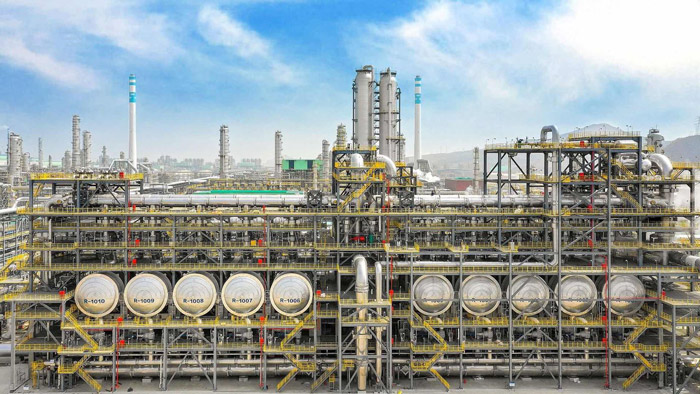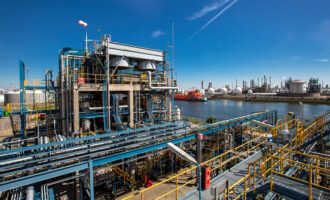
Clariant announces successful startup of world’s largest dehydrogenation plant in China
Clariant announced the successful startup of its CATOFIN catalyst at Hengli Group’s new mixed-feed dehydrogenation plant in Dalian, China. The new unit combines propane dehydrogenation (PDH) with iso-butane dehydrogenation (BDH) process technologies, and it will produce more than one million tons of olefins per year — becoming the world’s largest plant using CATOFIN catalyst technology.
The state-of-the-art process pairs Clariant’s CATOFIN catalyst together with McDermott’s Lummus process technology and is proven to enable high reliability and yields, cost efficiency and simplicity. In addition to the CATOFIN catalyst, the facility is using Clariant’s innovative Heat Generating Material (HGM) to produce its on-purpose olefins.
Founded in 1994, Hengli Group is one of China’s foremost suppliers of petrochemicals. Hengli Group’s new dehydrogenation plant in Dalian, China, is designed to process 500 kilo tons per annum (KTA) of propane and 800 KTA of iso-butane feeds to produce propylene and iso-butylene.
“We are very proud of our achievements on this groundbreaking project. The fast, smooth and successful startup of this world’s largest paraffin dehydrogenation unit would not have been possible without reliable and experienced partners like Clariant,” said Guangqin Peng, chief engineer of Hengli Petrochemical (Dalian) Refinery Co. Ltd.
CATOFIN operates at thermodynamically-advantaged reactor pressure and temperature to maximize yield. The process relies on Clariant’s highly selective CATOFIN catalyst and the company’s patented metal-oxide HGM to deliver high conversion rates. With the successful startup of the Hengli plant, this now marks Clariant’s 21st CATOFIN unit in operation, totaling more than nine million tons of olefin production capacity globally.









